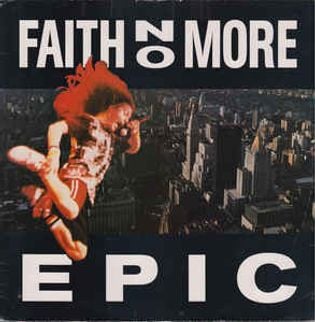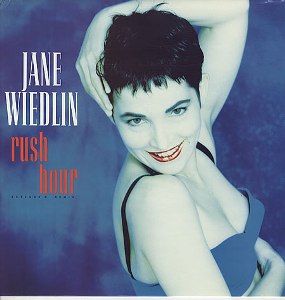 From the very first snapping rhythm, “Jockey Full of Bourbon” immerses you in the dusky, crime-laced underworld of Tom Waits’ imagination. Released in 1985 on the critically acclaimed album Rain Dogs, this track is a standout not just for its sonic texture, but for how it encapsulates the transformation of Tom Waits from a Beat poet and piano bar balladeer into a modern-day American shaman. By the time “Jockey Full of Bourbon” barrels out of the speakers, it’s clear that Waits had reached a new artistic plane—one where rhythm, narrative, and shadowy American archetypes fuse into something transcendent.
From the very first snapping rhythm, “Jockey Full of Bourbon” immerses you in the dusky, crime-laced underworld of Tom Waits’ imagination. Released in 1985 on the critically acclaimed album Rain Dogs, this track is a standout not just for its sonic texture, but for how it encapsulates the transformation of Tom Waits from a Beat poet and piano bar balladeer into a modern-day American shaman. By the time “Jockey Full of Bourbon” barrels out of the speakers, it’s clear that Waits had reached a new artistic plane—one where rhythm, narrative, and shadowy American archetypes fuse into something transcendent.
“Jockey Full of Bourbon” sounds like something you’d hear echoing out of an alleyway in a broken-down New Orleans, or drifting through an open window in a Havana cantina where everyone is watching each other with suspicion. There’s an air of menace and intoxication to it—both figuratively and literally. The rhythm lurches forward like a stumbling drunk, carried by the haunting Caribbean beat and Marc Ribot’s skeletal guitar licks. The track manages to be danceable and dangerous at the same time, like a knife fight at a wedding.
Waits, as always, uses his voice like a weapon. Gravelly, torn, weary and full of barely-contained mania, he recites cryptic, fragmentary lines that come across like overheard dialogue from a dozen different noir films. “Edna Million in a drop-dead suit / Dutch pink on a downtown train” isn’t meant to be interpreted literally. These images exist for their texture, their rhythm, their taste in the mouth. He’s not telling a story—he’s conjuring a world.
The sonic world of Rain Dogs—and especially this track—was something new in 1985. Using junkyard percussion, detuned instruments, and an aesthetic more informed by Kurt Weill, Howlin’ Wolf, and carnival music than contemporary pop, Waits created a universe that felt like the ghost of Americana. “Jockey Full of Bourbon” stands as a kind of skeleton key to that world. It’s both entry point and thesis statement.
What makes this track so enduring is the way it resists easy interpretation. It’s a noir painting that keeps changing its shadows. It’s a drunken poem scratched into the bathroom stall of the mind. Every line Waits sings seems to point in a different direction: “Two dollar pistol but the gun won’t shoot,” “Hey little bird, fly away home,” “Night train’s gone but the whistle’s still blowin’.” These aren’t puzzle pieces meant to be assembled—they’re talismans, totems, flickers of light and fear in a decaying American dreamscape.
It’s a song obsessed with geography and displacement. References to different cities and places (downtown trains, shadowy backstreets, dry counties) fill the lyrics. But none of it is grounded in any one reality. This is a dream-America, Waits’ own post-industrial fairytale land, where the bourbon is bottomless and the jockey’s always just around the corner, whispering something you can’t quite make out.
Part of the brilliance of “Jockey Full of Bourbon” lies in how it operates on multiple levels. On the surface, it’s a percussive, swampy, tropical rhythm—an unusual fusion of Afro-Cuban and avant-garde blues. Underneath, it’s a commentary on addiction, on criminality, on marginal lives. And somewhere deep beneath that, it’s a love letter to the broken, strange corners of American culture that rarely get celebrated in pop music: the bartenders, the fugitives, the used-up cowboys and the girls who leave and never write.
Waits’ vocal delivery is the glue that holds all this together. His voice on this track is like a busted saxophone: full of breath, friction, and longing. You get the sense he’s singing through a hangover, or possibly into one. He doesn’t so much enunciate as suggest. His phrasing has a kind of slow menace, like he’s narrating a dream that turns into a nightmare. He’s not trying to seduce you with melody. He’s trying to pull you under.
One of the unsung heroes of this song is guitarist Marc Ribot. His playing is angular, haunted, and deceptively precise. He delivers licks that sound like they’re being played through broken wires or shouted from a rusted fire escape. His touch evokes a distant past—Cuban son, New York no wave, spaghetti western scores—but filtered through the Waitsian lens, it becomes something utterly new. Ribot’s guitar doesn’t accompany Waits—it antagonizes him, dances around him, slithers under his skin. It’s a duel, and it’s glorious.
Another key ingredient is the production, which straddles lo-fi grime and careful craftsmanship. Waits, having moved on from the slick polish of his earlier work, embraced a junkyard aesthetic that now feels prophetic. He pioneered the kind of sonic experimentation that would go on to inspire countless artists in the decades since—from Nick Cave and Beck to the Black Keys and Fiona Apple. You can draw a line from “Jockey Full of Bourbon” to the entire Americana revival of the 2000s, and beyond.
“Jockey Full of Bourbon” also enjoys an unexpected cultural second life, thanks in part to its appearance in Jim Jarmusch’s 1986 cult film Down by Law. The use of the track in the opening sequence, with slow, sweeping shots of a grimy New Orleans, was a masterstroke. It’s one of those perfect marriages of song and image. Jarmusch and Waits share a similar aesthetic—gritty, poetic, black-and-white worlds full of drifters and loners. The song’s placement there ensured that it would be discovered by a wider audience, especially in the indie and film community.
Yet for all its cinematic texture and musical innovation, “Jockey Full of Bourbon” endures because it feels like a message in a bottle from a man who’s lived too long and seen too much. It’s one of those songs that seems to exist out of time. You can’t pin it to 1985. It could have come from 1935, or 2025, or the fever dream of someone half-awake on a train going nowhere. It resists nostalgia because it never sounded like anything else to begin with.
Tom Waits has often talked about being drawn to the outsiders and the misfits. “Jockey Full of Bourbon” is a hymn for those figures, a blues for the lost and damned, the kind of track that makes you feel like you’ve stepped into a smoky basement bar at the end of the world. It’s full of unplaceable dread and beauty. It hums with life and death and everything in between.
And perhaps what makes the song most remarkable is that despite its complexity, it remains profoundly listenable. You can dance to it, or cry to it, or get drunk to it, or all three at once. It’s the soundtrack to mistakes and memories, to the lives we live when no one’s watching. It’s one of those rare tracks that doesn’t just entertain—it haunts. It stays with you.
More than 35 years after its release, “Jockey Full of Bourbon” still feels like a secret waiting to be discovered, like a half-remembered dream that’s more real than your waking life. For Tom Waits, it was one of many artistic triumphs. For the rest of us, it’s a four-minute masterpiece—a cryptic, menacing, oddly beautiful distillation of American noir set to rhythm, rhyme, and ruin. You don’t understand it fully, and you’re not supposed to. You just put it on, pour yourself something strong, and let the shadows do the rest.


